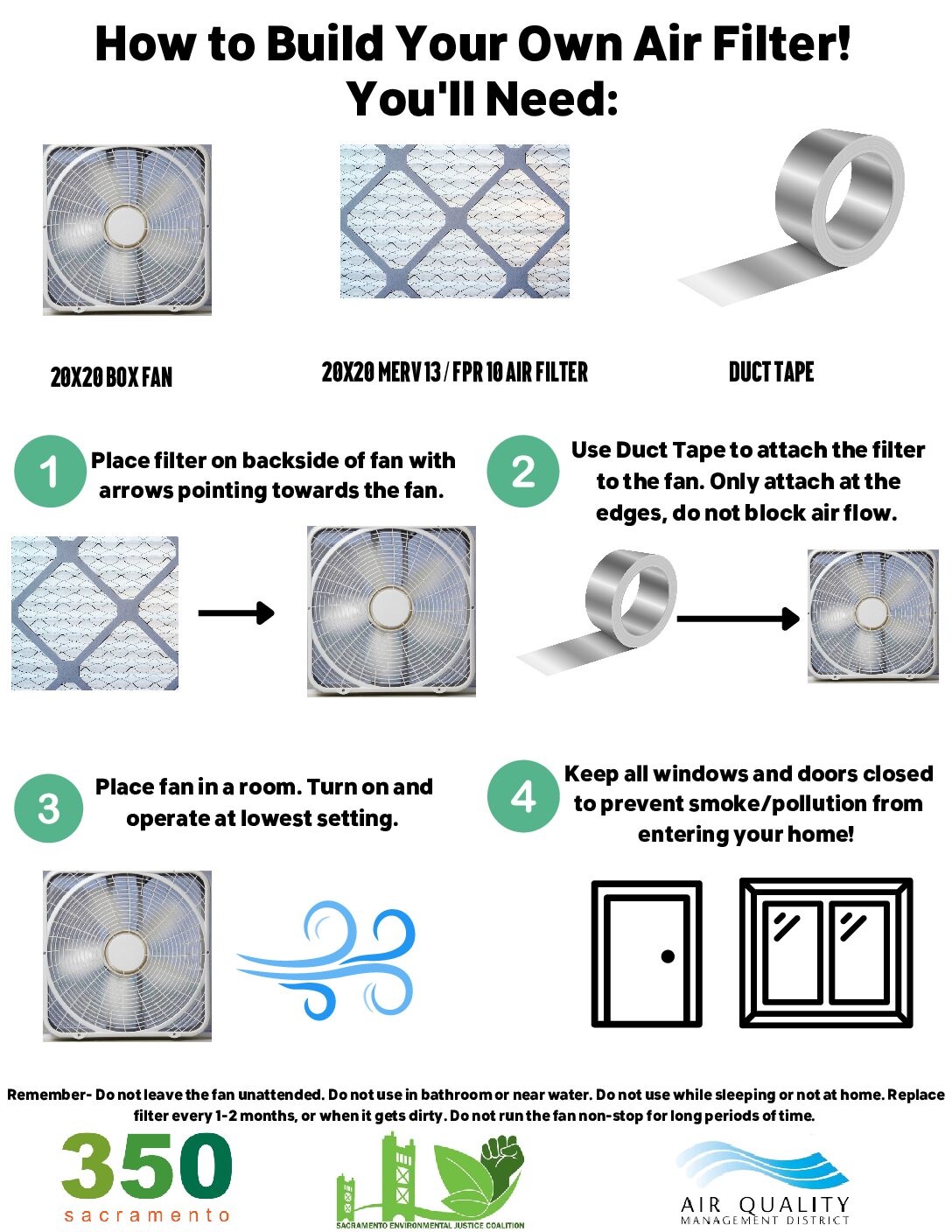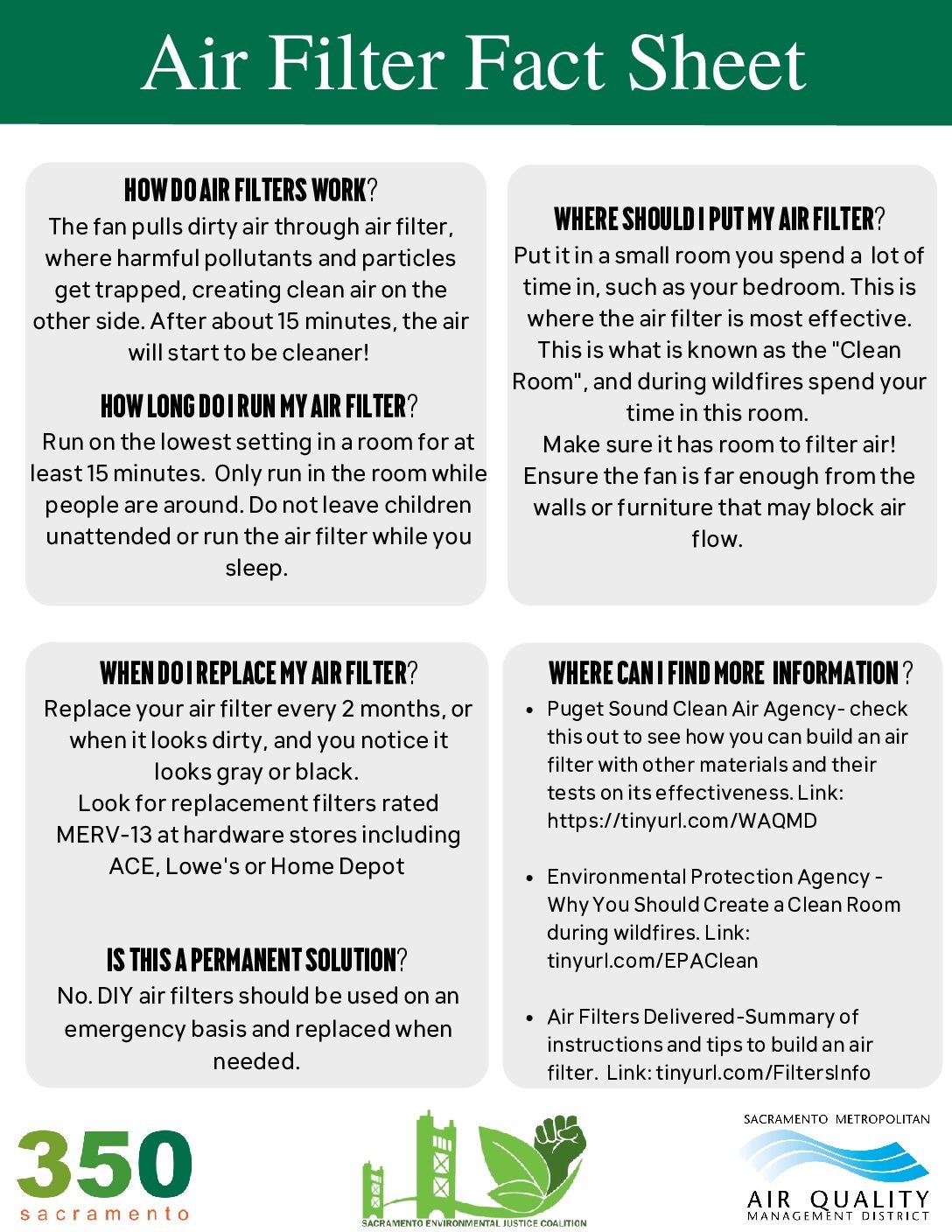Home » Resources » Resource Library »
Breathe Better with DIY Air Filters
Air pollution is a horrific byproduct of our continued global dependence on fossil fuels, and it is NOT your fault. However, there are some simple things we can all do to help clean up the air inside our own homes that will help us breathe a little easier in the meantime.
What Are DIY Air Filters?
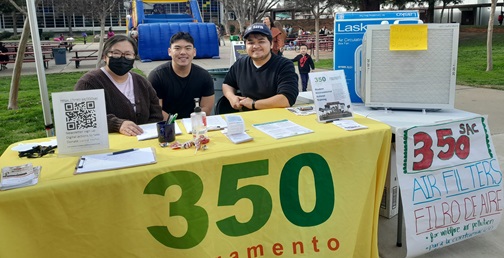
Air filters help keep the air inside your home clean during wildfires and seasonal allergies. These filters were chosen because you can create an effective and affordable air filter in only a few steps.
Air Filter Project Funding Notice
Notice: 350 Air filters workshops were funded by the Sacramento Air Quality Management District, as a pass-through for the Supplemental Environmental Projects (SEP) program; an innovative program that allows organizations to convert their air quality fines into funding for local air quality improvement projects. These DIY projects were created in response to how climate change impacts our communities.
Wildfires & Climate Change
The Wildfire & Climate Change Connection
Fossil fuels are used to power many of our everyday things including lights, cars, and factories. The use of these fossil fuels creates greenhouse gasses (GHGs) and toxic particulate matter.
The greenhouse gasses released into our atmosphere trap heat, and since there are so many GHGs in the atmosphere, they trap a huge quantity of heat. This creates what we know as climate change, where weather patterns become more intense.
Protect Yourself from Wildfire Smoke
1. Stay inside, with all windows and doors closed.
- This simple practice of closing doors and windows limits your exposure to harmful particulates created by the smoke.
- If you have central air conditioning, set your system to “on”. This helps filter the air in your home!
- Avoid participating in or limit activities that increase pollutants in your home, including running a gas stove or vacuuming.
2. Visit clean air centers throughout the city: Sacramento has clean air centers that provide relief from the wildfires once dangerous air quality levels have been reached. You can visit the Sacramento Air Quality Management District website to find a center.
3. Wear an N-95 Mask: A National Institute for Occupational Safety & Health (NIOSH) approved N-95 mask can help filter out harmful particulate matter if you have to leave your home for work or errands. It is very important for pregnant women and the elderly to wear these masks. You will need to ensure the mask is NIOSH approved and fits correctly. You can find more information about N-95 masks and fitting them here: https://www.cdc.gov/coronavirus/2019-ncov/prevent-getting-sick/use-n95-respirator.html
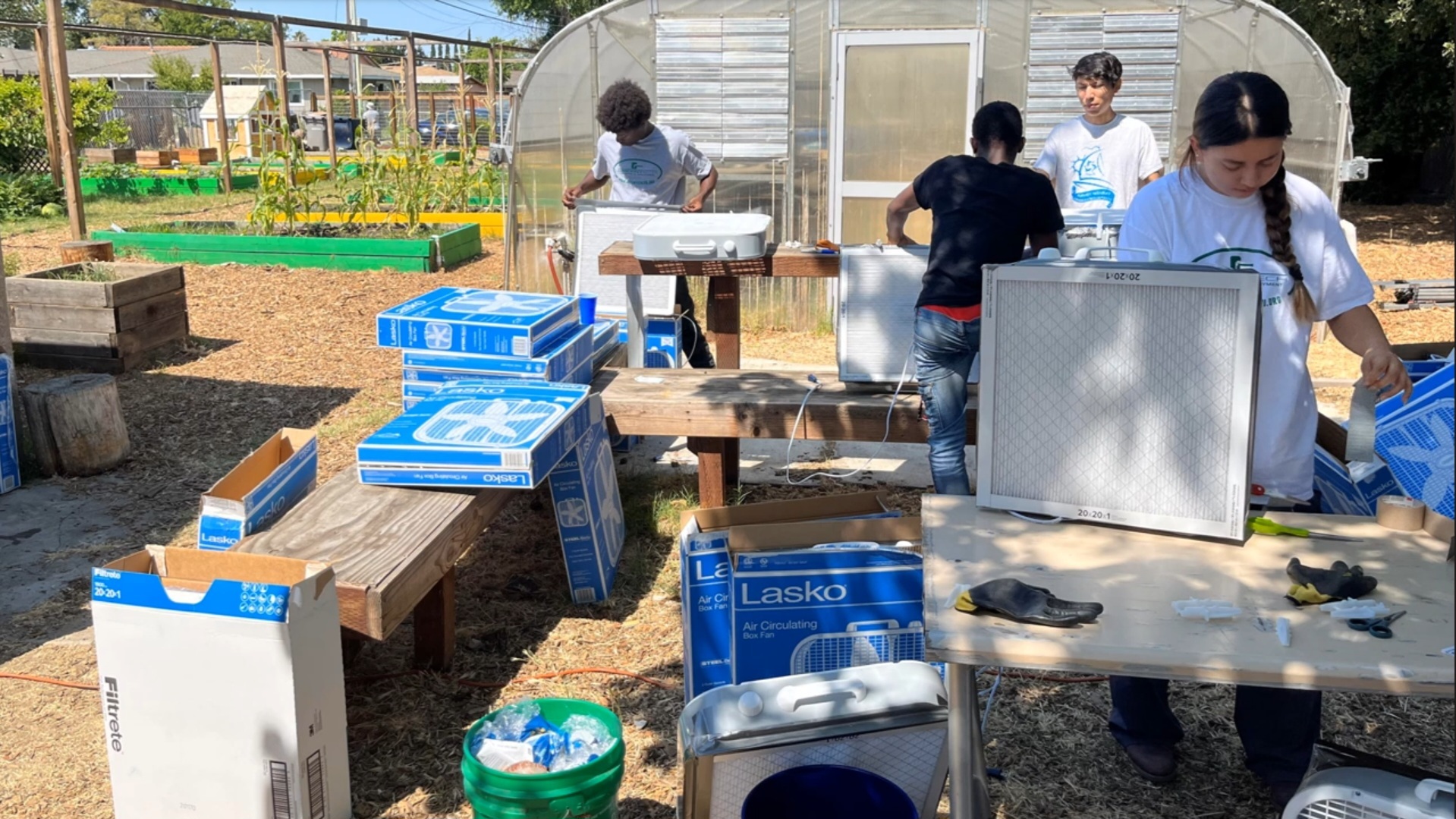
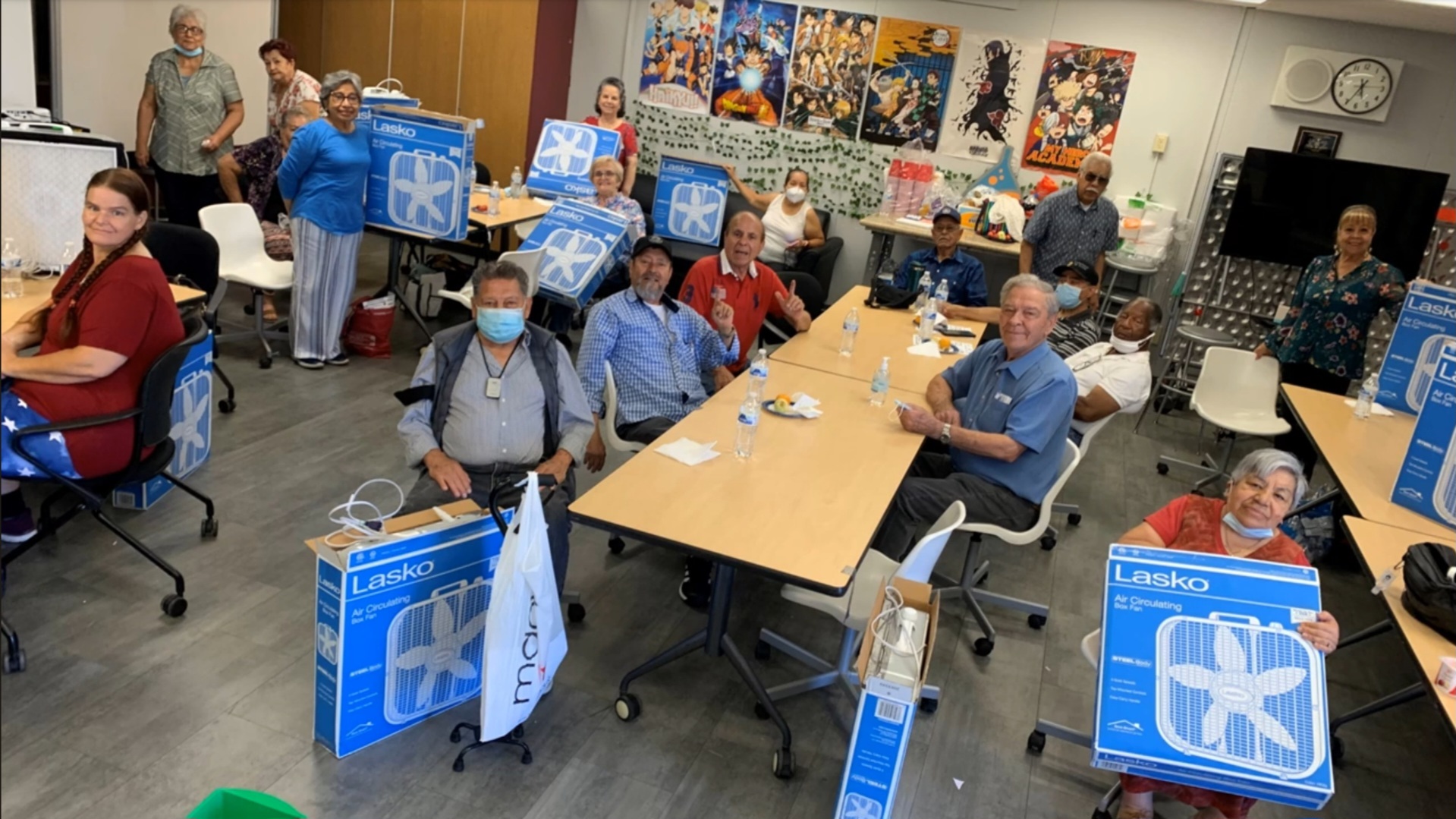
Please Note: Our Air Filter program has completed. The following instructions will help you put together an air filter of your own.
DIY Air Filter Instructions
Monitor Air Quality
The U.S. air quality index (AQI) is pretty simple! The higher the number on the AQI means there is more pollution, and subsequently greater health concerns.
- Good air quality: AQI 50 or below.
- Moderate: 51-100
- Unhealthy for sensitive groups: 101-150
- Unhealthy: 151-200
- Very unhealthy: 201-300
- Hazardous: 301 and higher
Air Pollution & Health
Environmental Protection Agency (EPA)
Environmental Protection Agency (EPA): Bad air quality impacts our lungs, and can make chronic conditions such as asthma even worse. At the worst level, it can cause heart failure and even death. The EPA is the body that governs air quality at a national level.
American Lung Association
American Lung Association: Particulates you inhale can cause asthma attacks, heart attacks, strokes, coughing, bronchitis, and colds.
Centers for Disease Control (CDC)
Centers for Disease Control (CDC): Children, the elderly, and pregnant women are particularly vulnerable to air pollution. If you are immuno-compromised or have other health conditions, these can be exacerbated.

